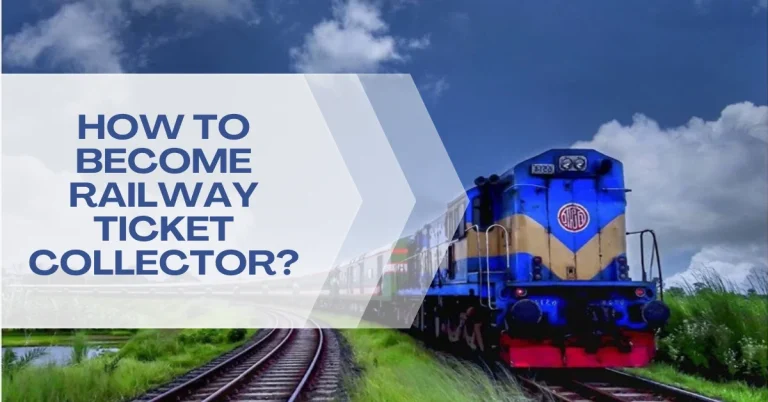What are the Bangladesh Railway Ticket Rules?
Ever thought about the updates to the Bangladesh Railway ticketing system and how they impact your travel experience? These recent changes are designed to simplify the process, ensure fair ticket distribution, and make journeys more efficient for everyone.
Let’s explore into these new rules and understand how they’re shaping a smarter and more seamless travel system for passengers.
What are the Bangladesh Railway Ticket Rules? (Quick Answer)
- Passengers must register with their NID card, birth certificate, or passport.
- Tickets are non-transferable.
- Carry a photocopy of your identification during travel.
- For ages 12-18, use a parent’s NID or birth certificate for registration.
- Foreign nationals must register with passport details.
- Mismatched ID and ticket details will lead to penalties.
- Helpdesks are available at major stations for assistance.
What are the Bangladesh Railway Ticket Rules?
The Bangladesh Railway has revamped its ticketing system with the aim of improving services and preventing issues such as black-market ticket sales. These changes are part of the government’s vision to create a “Smart Bangladesh.” The slogan “Ticket for one, travel for one” reflects the core idea of fairness and transparency in the new system. Below, we will break down the rules and how they affect train travel in Bangladesh.
Key Rules for Booking and Traveling
1. Mandatory Registration for Ticket Purchase
To buy tickets, passengers must register using a National Identity (NID) card or birth certificate. The registration process verifies personal information through the database maintained by the Election Commission (EC). For foreign nationals, passport details are required.
2. One Ticket, One Traveler
Tickets are now non-transferable. You cannot travel using someone else’s ticket, even if you have their NID or birth certificate. During travel, passengers must carry a photocopy of their registered identification document (NID, birth certificate, or passport) for verification.
3. Age-Specific Provisions
- For passengers aged 12-18: Tickets can be purchased through an account registered with a parent’s NID or the passenger’s birth certificate. A photocopy of the birth certificate must be carried during travel to verify identity.
- For children under 12: They can travel with their parents or guardians, but specific details about ticketing should be clarified during registration.
4. Rules for Foreign Nationals
Foreign travelers must register using their passport number and upload a copy of their passport photo. This ensures that their details are securely stored and verified.
5. Verification During Travel
If the details on the ticket do not match the identification document carried by the passenger, they will be treated as traveling without a valid ticket. Legal actions, as per Bangladesh Railway laws, may follow.
6. Helpdesk Support
To assist with the new system, helpdesks have been set up at major railway stations across the country. These desks help passengers register and resolve any issues they encounter with the ticketing process.
Objectives Behind the New Rules
The updated rules aim to:
- Prevent black-market ticket sales: By linking tickets to personal identification, unauthorized reselling is minimized.
- Ensure fairness: Every passenger gets equal access to tickets.
- Improve accountability: Identification requirements make it easier to track passengers.
- Align with Smart Bangladesh goals: Modernizing the ticketing system is a step toward a more advanced and efficient railway network.
Benefits of the New Ticketing System
- Transparency: The system ensures that only registered individuals can book tickets, eliminating fraudulent practices.
- Convenience: Online registration and ticket booking save time and reduce the hassle of standing in long queues.
- Security: Linking tickets to identification adds an extra layer of security for passengers.
- Enhanced services: With more accurate passenger data, Bangladesh Railway can improve its overall services.
Common Challenges and Solutions
While the new system offers many advantages, it may pose challenges for some passengers:
- Lack of digital literacy: Some people, especially in rural areas, may find it difficult to navigate the online registration process. The helpdesks at railway stations aim to address this issue.
- Document availability: Not everyone may have immediate access to an NID or birth certificate. Encouraging passengers to prepare these documents in advance is crucial.
- System errors: As with any digital system, occasional technical issues may arise. Bangladesh Railway is working to ensure a smooth experience through regular updates and maintenance.
Future Plans for Bangladesh Railway
The government’s vision includes further modernization of the railway system. Plans include:
- Introducing e-tickets for all train routes.
- Enhancing mobile app features to make ticket booking even more convenient.
- Upgrading railway infrastructure to improve the travel experience.
Frequently Asked Questions
Q. Can I book tickets without an NID or birth certificate?
No, passengers must register using an NID, birth certificate, or passport.
Q. What happens if I lose my ticket?
You must carry a valid identification document matching the ticket information. Losing your ticket may result in penalties.
Q. Are tickets refundable?
Refund policies depend on the type of ticket and the cancellation time. Check with Bangladesh Railway for specific rules.
Q. How do I register a child for a ticket?
Children aged 12-18 need a registered account linked to their parent’s NID or their own birth certificate. For younger children, details will be managed by their guardians.
Q. Is the new system available at all railway stations?
Yes, but helpdesks are primarily located in major divisional cities.
Final Thoughts
The updated Bangladesh Railway ticket rules mark a significant step toward modernizing the country’s transportation system. These changes not only make train travel more efficient but also align with the government’s broader goals of creating a digital and smart Bangladesh. While the transition may take some getting used to, the benefits—from enhanced security to fairer ticketing practices—are undeniable. As passengers, it’s our responsibility to adapt and embrace these improvements for a better travel experience.







